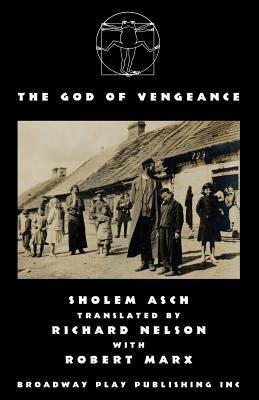B B C correspondent David Mazower (Sholem Asch's great-grandson) described THE GOD OF VENGEANCE as "admired, translated, parodied, panned, banned, prosecuted, withdrawn, forgotten, revived, celebrated." An international sensation after its 1907 world premiere in Berlin at Max Reinhard's Deutsches Theater, Asch's play quickly became the first Yiddish drama performed in translation across Europe and America. Notoriety was a key part of its success. Nearly every production sparked some level of controversy due to the script's conflicting themes of hypocrisy and religious faith, rebellion and tradition, its brothel setting, graphic domestic violence, "gutter poetry" reminiscent of Wedekind, and an unprecedented erotic scene of lesbian seduction. This pre-Holocaust drama is today circumscribed by a very different post-Holocaust world, but THE GOD OF VENGEANCE remains one of the great urban dramas of the Yiddish Theatre repertoire.

B B C correspondent David Mazower (Sholem Asch's great-grandson) described THE GOD OF VENGEANCE as "admired, translated, parodied, panned, banned, prosecuted, withdrawn, forgotten, revived, celebrated." An international sensation after its 1907 world premiere in Berlin at Max Reinhard's Deutsches Theater, Asch's play quickly became the first Yiddish drama performed in translation across Europe and America. Notoriety was a key part of its success. Nearly every production sparked some level of controversy due to the script's conflicting themes of hypocrisy and religious faith, rebellion and tradition, its brothel setting, graphic domestic violence, "gutter poetry" reminiscent of Wedekind, and an unprecedented erotic scene of lesbian seduction. This pre-Holocaust drama is today circumscribed by a very different post-Holocaust world, but THE GOD OF VENGEANCE remains one of the great urban dramas of the Yiddish Theatre repertoire.